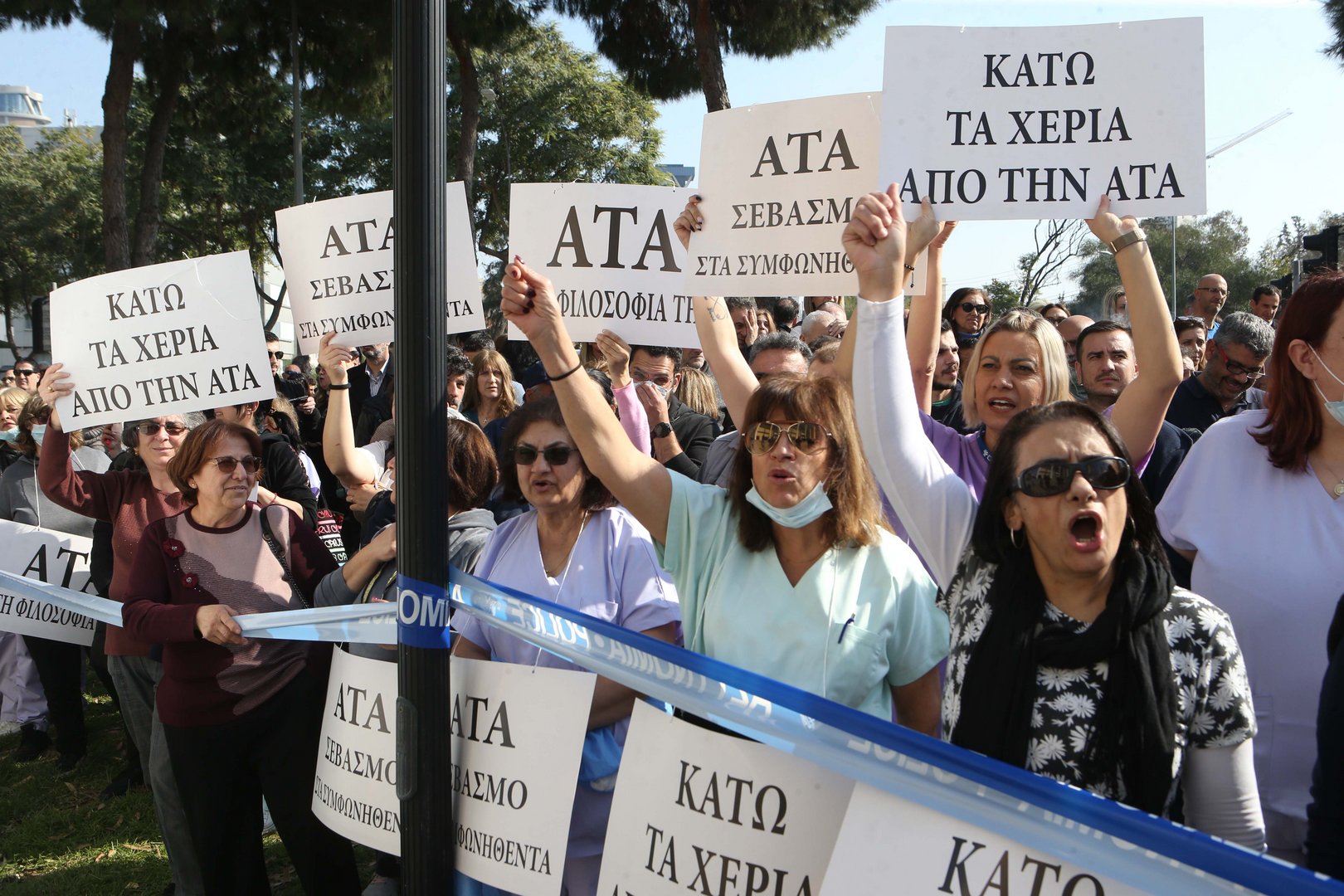Work stoppages expected to paralyse the economy
Trade unions on Monday called a general strike for September 11 after failed talks for the full implementation of the cost-of-living allowance (CoLA).
At a meeting in Nicosia, the unions decided on a three-hour work stoppage from 11am until 2pm on September 11, as a warning for harsher measures if their demands are not met.
The strike is expected to paralyse the economy, with action across both the private and public sector.
Gatherings by striking workers will be held across Cyprus, with the main one scheduled for noon outside the finance ministry in Nicosia.
Labour Minister Yiannis Panayiotou called for collective responsibility as efforts continue to find a solution.
The employers’ federation (OEV) and the chamber of commerce and industry (Keve) both deplored the announced strike.
Keve said that strikes were not only a dead-end action, but also dangerous for the future of the country’s economy.
“At a time when businesses and society are struggling to maintain stability and build prospects for growth, the decision for an unnecessary conflict torpedoes productivity, discourages investment and directly harms the credibility of our country,” Keve said.
It added that resorting to strikes instead of a sincere dialogue was “an indication of irresponsibility”, which would have “unbearable consequences on businesses and the workers themselves, as well as households which will find themselves under more pressure”.
“This is a clearly extortionist tactic, which not only does not contribute to a solution of the problems,” but leads to an impasse and impacts the competitiveness of businesses, sending negative messages to investors and international partners, Keve said and called on the trade unions to “show responsibility”.
Employers’ federation (OEV) chairman Giorgos Pantelides also called on the unions to exhaust all efforts with employers to find a practical solution and regulate the issue of CoLA once and for all.
He said the industrial relations code – agreed on by the social partners in 1977 – “allows unions to avoid strike measures because an impasse has not been declared”.
The labour minister is “counting on the constructive stance of the social partners”, he added.
He said employers have been attending meetings with the unions and the labour ministry for months “to secure the competitiveness of our economy”.
“It was acknowledged […] that we must find a final solution to the issue of CoLA, which will incorporate the element of modernisation,” Pantelides said.
But the unions said the government’s position was in line with that of the employers, as became evident during Friday’s meeting.
Sek general secretary Andreas Matsas said the trade union movement was united and called on employers and the government “to rise to the occasion and secure that the main parameters of collective agreements were respected”.
He added that CoLA, along with an increase in the minimum wage, could provide relief for workers.
Peo general secretary Sotiroulla Charalambous said workers were ready to fight for CoLA, the purpose of which was to maintain the purchasing power of wages.
“What we have been hearing over the past few months through the dialogue is an effort to change the philosophy of CoLA and deconstruct its role and aim,” she added.
Charalambous said all sectors of the economy would be on strike, including construction, hotels, civil service, education, hospitals, ports and media, with skeleton staff at essential services.
“This is a first step in a series of measures to be taken until we reach our aim,” Matsas added.
Charalambous said the labour ministry had been given ample opportunity to reach an agreement.
She added that the employers’ side wanted to alter CoLA into a form that would not be recognisable as the current cost-of-living allowance.
Matsas agreed that the unions had given plenty of time and alternatives in an effort to move the process forward. “Unfortunately, on Friday the employers’ side and the government itself […] chose to leave the workers out and give a different interpretation to CoLA”.
Earlier on Monday, Matsas and Charalambous both said the precondition for the dialogue to move forwards between trade unions and employers was an agreement on CoLA.
“Strike measures are a one-way street,” Matsas and Charalambous said, explaining that the dialogue should have been wrapped up by June 30, but the trade unions gave more time.
During a meeting on Friday at the labour ministry, it was determined that talks on CoLA had reached a deadlock and that the two sides’ views were miles apart.
For this reason, unions have no other choice than to launch strike measures in local administration and the public and private sectors, Matsas told the Cyprus News Agency.
He added that solutions could be found with good will and that the employers’ side would have time to change its stance before the strikes begin.
Matsas explained that CoLA was provided for in collective agreements and expressed hope that it wouldn’t be necessary to escalate measures.
Charalambous said that since the employers’ side wanted to adopt criteria for CoLA, which would cause it to fail, the trade unions had no other choice than to activate their decision for strikes.
She added that the trade unions were not refusing to talk, however the employers should agree to CoLA in full.






Click here to change your cookie preferences